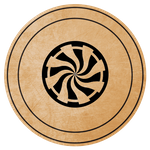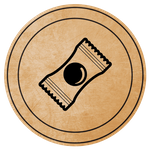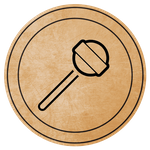Emergency Tips and Foods To Avoid With Braces and Retainers

If you or your child has braces or a retainer, there are a few things to keep in mind when it comes to foods to avoid as well as in case of an emergency. John S Walker, DMD is a board-certified Orthodontist in Boulder, CO. We have some helpful tips for emergency situations and braces and retainer maintenance. Keep reading to learn more, and contact us today if you have any questions or an orthodontic emergency.
Emergency Tips for Braces and Retainers
Generally, it is rare to have a true orthodontic emergency, and most minor issues can be handled at home. If you have an infection, bleeding, or swelling, you should visit your general dentist as soon as possible. Once the issue has been dealt with, please let us know so we can stay informed and on track with your treatment. For minor discomforts, learn how to self-troubleshoot problems with your braces or retainers below.
If Your Teeth Are Sore After Bonding: It’s normal for your teeth to be tender for about three to five days after beginning treatment or after adjustments. You can relieve this with over-the-counter Ibuprofen and warm salt water rises — use 1 teaspoon of salt per 8-ounces of warm water, swish around your mouth, and spit.
If Something Feels Pokey: If you have braces or a retainer and you feel a wire poking into your mouth, use the wax that came with your braces or retainer. Form a ball with the wax and firmly press it to conform it around the pokey wire. Then, contact our office to schedule an appointment to have the wire clipped. If the wax is not comforting the pain, you can carefully cut the wire behind the bracket with nail clippers or wire cutters. Pull the cut wire toward the front of the mouth to discard it after cutting.
If You Feel or Find Loose Bands: Having a loose band can occasionally happen if you have braces or retainers. If this happens, contact us to schedule an appointment to fix the bracket. If the bracket came off of the wire, please ensure to save it and bring it with you. Put wax on the wire if the bracket is sliding around or bothering you.
Foods To Avoid If You Have Braces or Retainers
Here are a few examples of the types of foods to avoid eating if you have braces or retainers.

Sticky Foods
Anything sticky that can potentially get stuck in your braces or retainer should be avoided. These include candy, gum, caramel, and toffee. Not only is it difficult to remove these sticky foods from your braces or retainer, but they can also cause damage to your orthodontic appliances.

Chewy Foods
It is best to avoid sticky foods as they can cause damage to your braces or retainers, as well as cavities. These can include candy, gum, caramel, toffee, and other sticky sweets.

Hard Foods
Biting into hard or crunchy foods can damage your braces or retainers and cause pain, so it's best to stick to softer, easier-to-chew foods. Common hard foods to avoid include hard candy, nuts, popcorn, and ice.

More Food and Drink Tips for Braces and Retainers
Below are some additional tips regarding eating and drinking if you have braces or retainers.
Cut your food into smaller pieces and chew slowly — especially raw veggies, tough breads, and firm meats. Also, be sure to cut corn off the cob when eating.
Keep all fingernails, pens, pencils, and any other foreign objects out of your mouth.
Use extra care when chewing gum, chewing only one stick of soft, sugarless gum at a time.
Have any questions about what you can and can't eat with braces or a retainer, or what to do if there’s an emergency? Contact your orthodontist, John S Walker, DMD in Boulder. And, remember to brush and floss regularly to keep your teeth and gums healthy and for the best way to practice braces and retainer maintenance!
